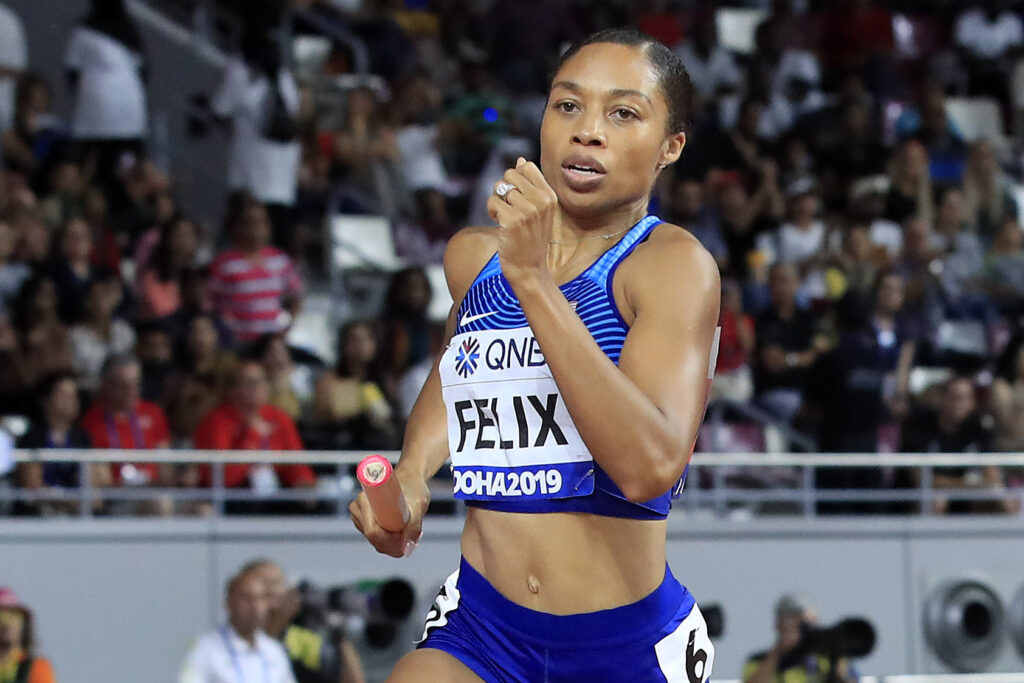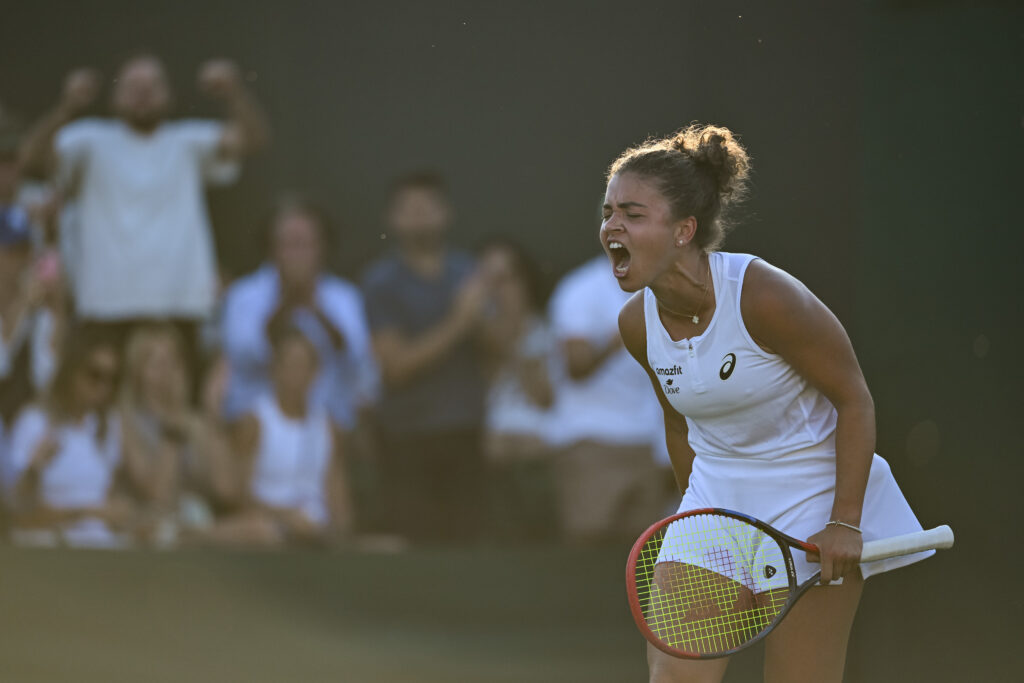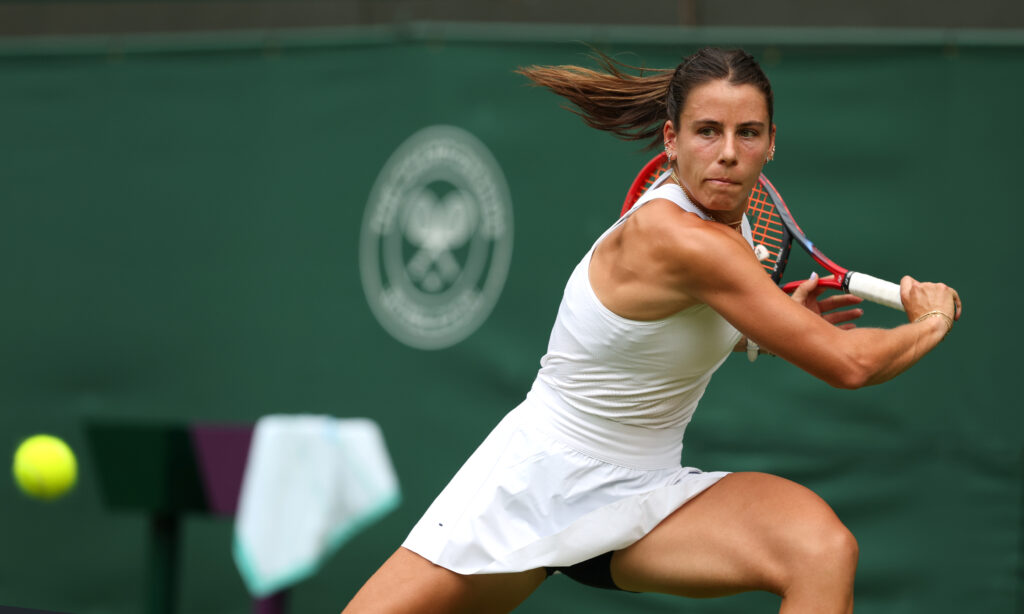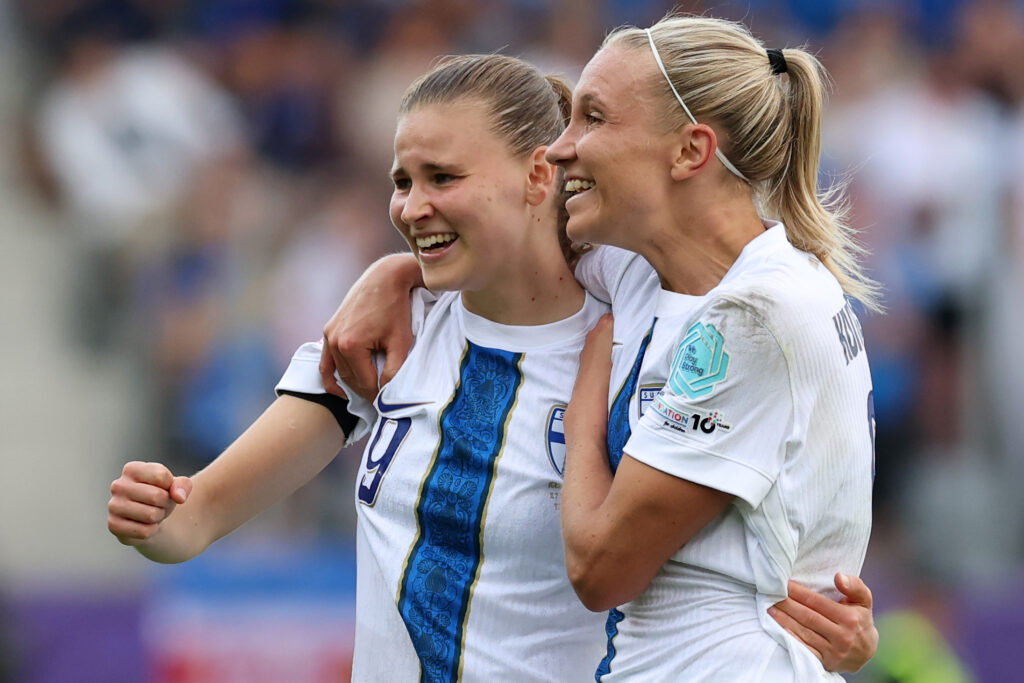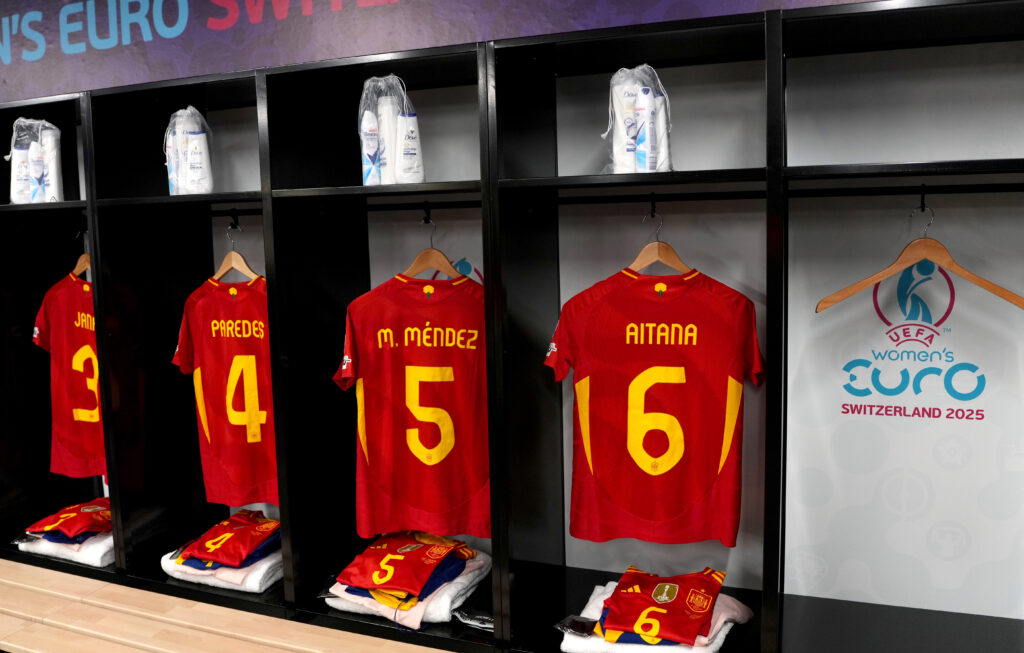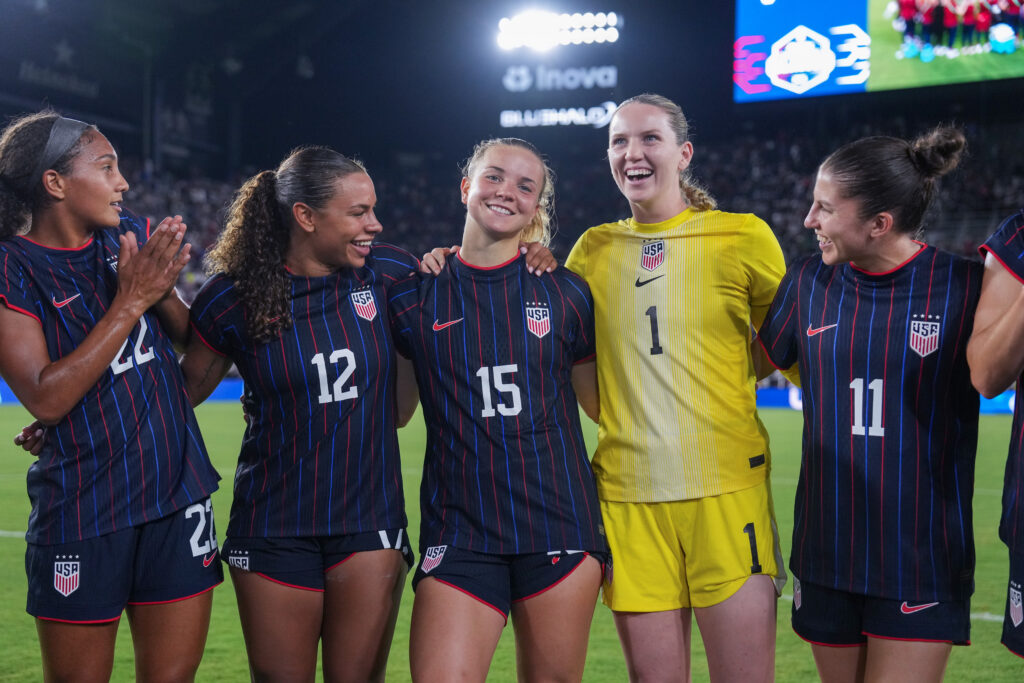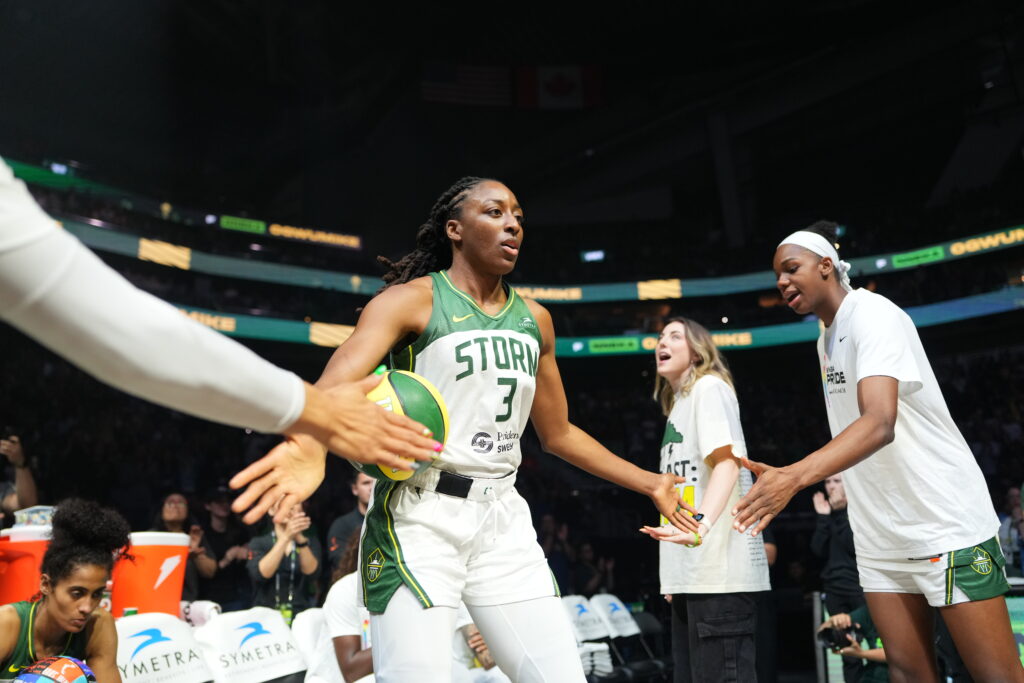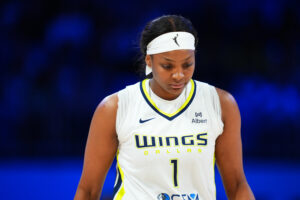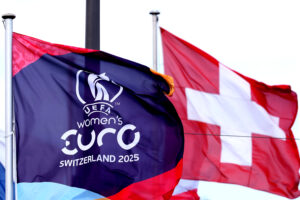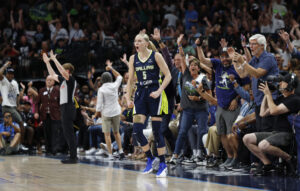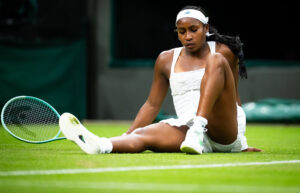It seems like every Olympic cycle we are presented with female athletes accomplishing ever more impressive feats both during pregnancy or while mothering infants and young children. These women have again and again challenged misbeliefs regarding what the human body is capable of.
Ahead of Tokyo, however, we’re seeing a new level of advocacy and activism from athlete moms who refuse to accept the notion that one must choose between elite level sports and motherhood.
The four women featured below are tired of the rare story of a magnificent athlete being praised for somehow fitting children into her athletic career. Instead, they are fighting for systemic changes and built-in protections to normalize motherhood at even the highest levels of sports.
Allyson Felix, Track and Field
It’s hard to think of an athlete who has done more for maternal rights in the sporting world than Allyson Felix. In 2018, during contract negotiations with Nike, the newly pregnant Felix refused to re-sign unless Nike changed their stipulations around pregnancy for its female athletes.
Up until this point, a Nike athlete’s pay could be paused, reduced, or terminated if they failed to meet contractual performance standards during pregnancy and post-partum recovery. It wasn’t until Felix and a couple fellow athletes went public with their complaints, and a congressional inquiry was conducted, that Nike changed its policies and announced new maternity protections for all of its female athletes. By that time, Felix had found a new sponsor in Athleta, a company she felt fully supported all aspects of her identity, and with whom she recently launched her own footwear and lifestyle brand, Saysh.

In her latest move to support athlete mothers, Felix and Athleta teamed up with the Women’s Sports Foundation to create a $200,000 fund for mom-athletes to help offset childcare costs associated with travel for competition. Six of the first nice recipients are athletes headed to Tokyo this summer.
If what she’s done off the track is impressive, what she’s still doing on the track is mind blowing. She’s a 35-year-old mother of a toddler who just qualified for her fifth Olympic games, which is hard to fathom in any sport, but even more so in sprinting, where longevity at the upper echelon is fleeting. Felix will be joined on the 400M U.S. Olympic team by first place qualifier Quanera Hayes, who has a toddler of her own. After the two mothers qualified together, Hayes expressed her gratitude to Felix, saying “I just told her I was grateful for all that she’s done for mothers, being that I am a mother, how she fought for us and her paving the way for me as an athlete and all she has done for this sport.”
Kim Gaucher, Basketball
Canadian National Basketball Team member Kim Gaucher has a three-month-old daughter and is heading into her third Olympics. She’s been part of the Canadian national team since 2001 but has been playing basketball primarily in Europe after a brief stint in the WNBA. The 13th overall pick in the 2006 draft, Gaucher became the first female student-athlete to have her jersey retired by the University of Utah.
In the lead up to the Tokyo games this summer, Gaucher took to social media for what she called a “hail mary” to convince Olympic organizers to let breast-feeding athletes bring their children with them to Tokyo.
In her heartfelt plea she stated, “All I’ve ever wanted out of my basketball career has been to rep Canada at the Olympics… But right now I’m being forced to decide between being a breastfeeding mom or an Olympic athlete. I can’t have them both. Tokyo has said no friends, no family, no exceptions.”
When her video garnered traction online, media attention followed, and Tokyo officials felt the heat. Within a week of her posting her plea, the IOC announced Olympic mothers would be allowed to bring their breastfeeding children with them to Tokyo. Upon hearing the good news, Gaucher stated, “To all of the working moms out there who’ve had to fight this fight before, I think it’s just a really good day for women in sport.”
Mandy Bujold, Boxing
In late 2019, eleven-time Canadian National Champion boxer Mandy Bujold was well on track to qualify for her second Olympic games. Her first Olympic experience in Rio in 2016 had ended in heartbreak when she was hospitalized due to illness and then promptly lost in the quarterfinals. After taking time off from competing in 2018 and 2019 to have her daughter, Bujold had re-entered the ring and was looking to redeem her disappointing 2016 showing. When Covid-19 cancelled Olympic qualification events, the IOC Boxing Task Force decided to use rankings from three tournaments in 2018 and 2019 to determine Tokyo 2020 qualification.
Unfortunately for Bujold, she had been out during that time with pregnancy and post-partum recovery. After her original appeal to the IOC for an accommodation was denied, her last hope was to submit her case to the Court of Arbitration for Sport.
On June 30, the CAS ruled that the IOC Boxing Task Force qualification system must include an accommodation for women who were pregnant or postpartum during the qualification period. Bujold was named to the official Olympic roster the following week and considers the CAS ruling a huge victory for female athletes.
WE DID IT! pic.twitter.com/jpWHOpmwrP
— Mandy Bujold (@MandyBujold) June 30, 2021
“I am so proud that we’ve set a human rights precedent for female athletes now, and for the generations to come.” If this ruling is applied to all sports and all Olympic qualifying systems, it would be a monumental change for female Olympians going forward.
Alex Morgan, Soccer
Alex Morgan is far from the first athlete to return to the USWNT after birthing a child (or children), but she’s the only mother on the current roster. She’s also arguably the most famous U.S. soccer player to become a mother in the midst of her career, and fans can’t get enough of seeing her as a mom with her daughter Charlie. With so many eyeballs on her actions and choices as a mother, she is greatly impacting how the public perceives professional athlete moms. By sharing training videos during her pregnancy, Morgan challenged misconceptions about the capabilities of pregnant bodies and physical training during pregnancy.
In her first interview after becoming a mom, Morgan told longtime friend and teammate Kelley O’Hara on the Just Women’s Sport podcast that she was frustrated by the dearth of research and data on training for pregnant athletes.
“I found some blogs about women running marathons late in pregnancy,” she recalled, “so I just tried to be as careful as possible but stick to who I am as an athlete.”
As the once-postponed Olympics finally approached, there was confusion around Covid-19 restrictions for Olympic mothers with breastfeeding children. Morgan used her platform to speak out, calling for clarity and empowerment for mothers in this category like herself.
Still not sure what "when necessary" even means. Is that determined by the mother or the IOC? We are Olympic mothers telling you, it is NECESSARY. I have not been contacted about being able to bring my daughter with me to Japan and we leave in 7 days. #Tokyo2020 #USWNT #TeamUSA https://t.co/cNGMt8w0Ss
— Alex Morgan (@alexmorgan13) June 30, 2021
Morgan raises her voice when needed, but it’s really in her daily actions as a mom and a star of the most popular women’s sports team in the world that she constantly redefines how we view mom athletes.
